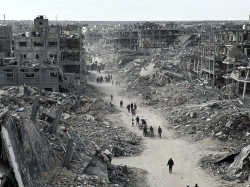Europe's slow start: How many people have had the Covid vaccine?
- 2021-01-08 22:11:05


 Pierre Rayer: Art, Science, and Happiness: The Universal Mission of Transmission to Future Generations through Patronage at the Louvre Abu Dhabi
Pierre Rayer: Art, Science, and Happiness: The Universal Mission of Transmission to Future Generations through Patronage at the Louvre Abu Dhabi Ahly crowned Super champions after dramatic extra-time win over Modern Future FC
Ahly crowned Super champions after dramatic extra-time win over Modern Future FC Yemeni Honey..A Development Wealth Threatened By Conflict And Climate Change
Yemeni Honey..A Development Wealth Threatened By Conflict And Climate Change California wildfires: Millions warned of possible power cut
California wildfires: Millions warned of possible power cut Central African rebels launch attacks near capital
Central African rebels launch attacks near capital Morocco B win FIFA Arab Cup after extra-time victory over Jordan
Morocco B win FIFA Arab Cup after extra-time victory over Jordan US, Qatar, Turkey, Egypt to hold Gaza talks in Miami
US, Qatar, Turkey, Egypt to hold Gaza talks in Miami 2 Killed , 9 injured in a Blast Outside Islah Party Headquarters in Yemen's Taiz
2 Killed , 9 injured in a Blast Outside Islah Party Headquarters in Yemen's Taiz 6 dead after private jet crashes in North Carolina
6 dead after private jet crashes in North Carolina Egypt says fully supports Trump’s vision for ending Sudan war
Egypt says fully supports Trump’s vision for ending Sudan war
